Disclosure: Privacy Australia is community-supported. We may earn a commission when you buy a VPN through one of our links. Learn more.
Best ASX Uranium Stocks to Buy in 2024
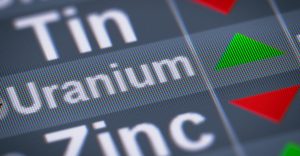
Uranium seems like a test of humankind’s patience. It is both the densest material in the world, even denser than lead and artificially made materials.
Unlike those artificially made materials, however, it is unbelievably heavy. But the really special thing about it is the fact that it is naturally radioactive.
When you hear “uranium”, your mind probably goes to nuclear weapons. That is the great test involved in dealing with uranium: It is dense, meaning that it can contain more energy than any other element we know of. And it is naturally radioactive, meaning it produces energy as it decays.
But just what does it mean to be radioactive? How is that a feature, and what applications does it have besides military?
If you are going to invest in uranium, you need to understand it as more than a hyperdense rock. You also need to know what it can be used for besides splitting the atom and destroying cities.
Table of Contents:
- What is Radioactivity
- How is Uranium Valuable
- What are You Buying When You Buy Uranium Stocks
- Which Uranium Stocks Should You Buy
What is Radioactivity?

Imagine an atom, to the best of your ability. An atom has electrons buzzing around it near the speed of light, as well as protons inside it. The number of protons determines what kind of atom it is, while the electrons determine its electrical charge. But there is a third subatomic particle: The neutron.
An oxygen atom, for example, can have one more, one less, or just as many neutrons as it has protons. But uranium is unique in that you can find uranium in nature that has more neutrons than it “should” have. If it has more neutrons than it should have, it becomes unstable and begins to shed neutrons to try and reach stability. This is known as the “small nuclear force”, and it is what creates radiation.
How is Uranium Valuable? 💰️
Individuals involved in the energy sector may have observed an intriguing phenomenon concerning uranium. Specifically, if unstable uranium releases neutrons as a result of a natural force—comparable to gravity or magnetism—wherein this force occurs perpetually and infinitely without requiring any maintenance, could it be effectively utilized for energy generation?
The short answer is yes, it can, though not in its natural state (at least not to any degree of efficiency). Uranium is valuable for energy production because there are a variety of ways to oversaturate it with neutrons, causing what is called “fission”. This is when the uranium atoms break down from one uranium atom with far too many neutrons, and into two uranium atoms with far too few.
What are You Buying When You Buy Uranium Stocks?
To begin with, most uranium stocks are focused on delivering uranium to the government for energy production purposes. It is an extraction and refinement industry. Uranium is used in the production of nuclear weapons, but you do not have to worry about your investment contributing to those.
The process of extracting energy from uranium is complex. Even countries that have the materials for it don’t necessarily have the capability to make use of it, simply because they lack the scientific expertise to execute on it. Turning that uranium into a bomb is even more complex. Even nuclear scientists that know how to do it can’t do it on purpose, much less by accident, cutting down on liability.
Which Uranium Stocks Should You Buy? 🔎️

Despite swearing off participation in the nuclear arms race, Australia is uniquely situated as being one of the largest exporters of uranium in the world. Its richness of resources has long been the envy of other countries, but in this sense, we hold the keys to some of the greatest powers humankind has ever made.
Here are ten uranium stocks to keep track of if you want to capitalise on this advantage.
1. BHP – Best Overall Uranium Stock
BHP is one of Australia’s largest and most well-known mining companies. Founded in 1885, they manage the extraction, transportation, and refinement of everything from iron to coal. And yes, uranium too.
BHP sits at the top of the pack because it is reliable. You don’t last more than 100 years without consistently making plans and sticking to them, while at the same time responding to ongoing market trends.

Uranium is one such trend. A material that was once thought useless is now the apple of many governments’ eyes. And BHP has the infrastructure and expertise to deliver it.
Drawbacks 👎️
Part of what allows BHP’s mining operations to spread so wide over the globe is the fact that it is actually owned in part by an Australian company and a company based in the United Kingdom.
This is not the biggest thorn in the side of the company’s profitability, but it does mean that it is subject to twice as much scrutiny and regulation as most other mining companies.
Pros
- Highly reliable
- Mines all over the world
- Both follows and creates trends
Cons
- Lots of eyes on it
2. Deep Yellow – Best New Uranium Stock
Most companies working in the realm of uranium are going to be converted from other companies; mining companies that go to work mining uranium instead of coal, or refinement companies that go from refining iron ore to refining uranium. Deep Yellow is one of the few that exists purely for uranium.
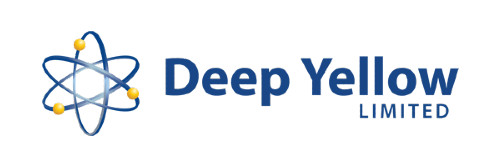
That focus allows it to bypass certain liabilities and regulations, as well as keeping the cost of investment down. Uranium mining is difficult, but because they can use the most recent equipment and mining methods without having to redefine their business plan, they are an extremely efficient company.
Drawbacks 👎️
Naturally, lots of focus on a brand-new company can make Deep Yellow feel like it’s picking up on a bandwagon. And because they are so new, the only real evidence contrary to this idea is that they have been effective and successful as a business. If you are uncomfortable investing in companies that have not proved themselves, then Deep Yellow is definitely not the uranium company for you.
Pros
- Exceptionally modern
- No baggage from previous industries
- Low cost of entry
Cons
- Their newness is a risk in itself
3. Boss Energy – Best New Uranium Exporter
While most mining companies will feature uranium exportation as part of their business model, Boss Energy is another one of those newer companies that got into the business specifically for uranium. But more than that, they got into the business to export uranium. Since Australia has limited use for uranium compared to the world superpowers, this allows Boss Energy to participate in the most lucrative aspects of the uranium industry.

It is also rapidly expanding as well since acquiring a different small-cap uranium mining company called Honeymoon, which quintupled its output.
Drawbacks 👎️
Most investors will actually take a step back and wait to see if a company can handle their output being quintupled overnight. A new company in a highly competitive industry suddenly having to meet a massively raised floor for demand? That sounds like a recipe for disaster or acquisition.
Of course, acquisition is hardly the worst thing for a company. But as an investor, you are probably looking for a stock that can grow on its own, rather than be designed to be bought out.
Pros
- New and growing fast
- Dealing internationally for huge profits
- Uses cutting edge mining and transportation technology
Cons
- Growing so fast that it might not be sustainable
4. Lotus Resources – Best Uranium Refiner
Uranium mining is the big focus of most uranium-based companies, but Lotus Resources stands out for being exclusively built around uranium refinement. And because they are a smaller company, that uranium refinement is itself rather focused. Specifically, it is centred around the Kayelekera uranium mine in Malawi. This mine went out of business recently but had mined uranium leftover in it.

It did not take much start-up capital for Lotus Resources to refine that uranium and sell it. Now, they are using the profits from that initial venture to reopen the mine. This is just where they are starting, too. There are Australian mines all over Africa that can be renovated in much the same way.
Lotus Resources is new, but they have a proven plan on how to do business and grow.
Drawbacks 👎️
Most of the uranium companies situated above Lotus Resources on this list do all their mining in Australia. There is a reason for that: African uranium mining has become steadily less profitable over the years. As post-colonial nations assert their rights over mineral resources, mining in them comes at a greater and greater cost. This is why the Kayelekera mine was abandoned in the first place.
Lotus Resources has a plan for this, obviously, but it is so new that it is uncertain whether or not that plan is going to run into harsh reality.
Pros
- A unique business plan
- Operates in countries with fewer regulations
- Executed quite a lot with only a little capital
Cons
- African nations in general are stepping up regulations
5. Paladin Energy – Best Australian Uranium Company in Europe
Paladin Energy is in an interesting situation. It is Australian based and has exactly one uranium mine in the country. But at the same time, it also makes use of uranium mines all over central and eastern Europe. This is on top of the mining operations it conducts for many other materials, mostly iron.

While it is not the oldest company by any stretch of the imagination, Paladin Energy was founded in 1993, making it a lot longer-lived than most mining companies. It has lasted this long by being unafraid to mine anything that people will pay for and expanding liberally. This makes it an excellent mid-level stock, where it is cheaper than the oldest companies and still has growth potential.
Drawbacks 👎️
Germany, Namibia, Australia, they all want a say in how Paladin Energy does its business. One of the biggest liabilities an investor can spot is government regulation, and the breadth of its operations mean that Paladin Energy is subject to a lot of it. This is the price of being a mid-cap company.
Don’t invest in Paladin Energy if you are looking for a company on the cutting edge. There is no way such a big company in so many countries will be able to innovate that much.
Pros
- Been around for years, making it reliable
- Keeps all its eggs out of one basket by expanding
- Invests in other forms of mining for safety
Cons
- Under lots of regulation
6. Bannerman Energy – Best Sustainability Focused Uranium Stock
Sustainability means a lot of different things. The definition of it that gets thrown around the most these days is that it means sustainable practices for the environment.
But what people are finding out more and more is that it can also mean sustainable practices for the business itself.

Green energy is not just good for the environment. It also makes businesses more efficient. That is what Bannerman Energy is focused on: Uranium extraction methods that make use of everything that is put into them. That means using solar power to cut down on fuel costs, wind power to make refinement cheaper, all to produce a material that can be used for one of the most efficient energy sources of all.
Drawbacks 👎️
All the optimism in the world can’t make green energy any less scary for investors. It might be more efficient, easier to maintain, and all around cheaper in the long run. But it is under so much societal scrutiny that people will find things to doubt in green energy methods.
That scrutiny alone is a liability, to say nothing of how new and prone to unforeseen mistakes any new technology is. That can tip some investors off to be cautious of Bannerman Energy.
Pros
- Highly efficient
- Focused business plan
- Only getting better at what they do
Cons
- Technology is so new that it is a liability
7. Peninsula Energy – Best Australian Uranium Mine in the US
One of the oddities of uranium mining is the fact that the people who consume the most of it have the least access to it. Russia has plenty of uranium, as expected of its landmass, but the United States actually has to get most of its uranium from abroad. In fact, they developed the means to harvest uranium effectively long after developing the means to actually make use of it.
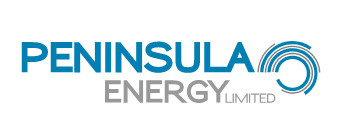
Peninsula Energy is one of the companies the US turned to in order to help them harvest their own uranium for exactly that reason. They own other mining companies as well, but their uranium mining operation is their most international by far, as well as one of their most profitable.
It really goes to underline just how much money is involved in uranium. They mine much more iron and coal than uranium but make much more money per kilogram off of uranium than anything else.
Drawbacks 👎️
As with any international mining company, they are subject to scrutiny by both their native Australia and the United States where they do the mining. This doesn’t hurt them as much as some other companies though, since the United States has famously lacked regulations on just about everything.
The real issue with mining in the US is less about the rules keeping them from mining too much, but more to do with the fact that the US has been effectively strip mined of uranium in some areas.
Pros
- Lots of experience, highly reliable
- Lucrative business partners in America
- Not as much regulation as you’d think
Cons
- Supply is lessening relative to demand
8. Elevate Uranium – Best Namibian Uranium Stock
Elevate Uranium is an Australian company, but you’d be forgiven for assuming that they were based out of Namibia.
You have heard that name before, and that’s because it’s been mentioned in this article. It is a country in Africa that has an absolutely massive quantity of uranium under its soil.
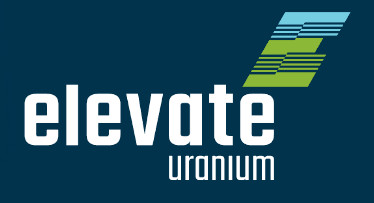
And, like all of Africa, it is a prize that tons of different western countries fight over. Elevate Uranium is doing pretty well for itself in that fight, making use of several of the smaller mines. Even smaller mines of mixed mineral compositions can provide enough uranium to make a business out of.
That is exactly what elevate is doing. It also has a focus on carbon-neutral production too, though it is a relatively new addition to its business model.
Drawbacks 👎️
A combination of small mines and risky business decisions mean that while Elevate Uranium is likely to grow in value over the next few years, it is no guarantee at any further time horizon than that.
Small mines are stripped far faster than big ones, and the company’s carbon neutral promises are only plausible if they keep mining uranium.
Pros
- Lots of mines in a rich location
- Mines things besides uranium
- Efficient use of tools
Cons
- Narrow growth potential
9. Vimy Resources – Best Unique Projects
UPDATE: Recently, Vimy merged with another Australian-listed uranium developer, Deep Yellow.
The funny thing about mines is that no one knows where to find them until they are found. That is the aspect of resource extraction that Vimy seeks to make the most use of.
What Vimy Resources focuses on is not just the mining of uranium, but the finding of untapped uranium deposits. By doing this, they are able to create supply where previously there was expected to be nothing. How consistent are they? Consistent enough to have made money.

This means that there are two valuations for Vimy Resources: What they have produced, as well as what they might produce. And that creates a great upper limit of their growth potential.
Drawbacks 👎️
Of course, that also means you have to worry about them making a mistake or running into an actual lack of uranium. There are a lot of things that separate uranium out from other resources. Its scarcity, the lack of drainage, the fact that it doesn’t degrade like normal materials, these all make it hard to track how much there is. And while Vimy has found untapped reserves, none of them are promised.
Pros
- Finding uranium deposits that were unknown before
- Using modern technology at every step
- Entirely Australia based mining
Cons
- Unpredictable future for the business
10. Energy Resources Australia – Best Stockpile Processing
Imagine an animal farm raises chickens, slaughters them, and then doesn’t do anything with the slaughtered chickens. That would be unthinkable in food processing, where there is a clear limit to how long a chicken will stay processable after being harvested for its meat.
But it is a lot more common than you might think in the world of mining, where getting minerals out of the ground is just one step.
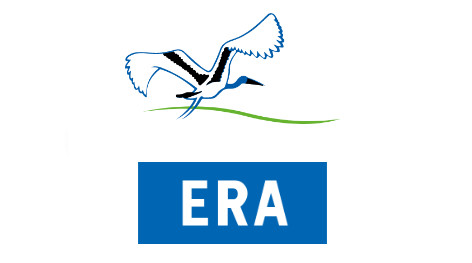
After that, you need companies like Energy Resources Australia. They take what other companies mine and turn it into a material that can be sold for the benefit of both the miner and the processor. This is a niche business, but it is a business that allows both ends of it to take some slack.
Energy Resources does not need to be at the forefront of both mining and processing. It is entirely focused on processing, allowing it to invest far more heavily into its innovations.
Drawbacks 👎️
Of course, that also means they are subject to a lot of shifting market forces. Everything from regulations to short supply to increased supply chain costs can slow down their business.
It is safe from certain risks but exposed to just as many.
Pros
- Keeps costs down by specializing
- That specialization means it can push the boundaries of technology more
- As much work as there is mining
Cons
- Business is reliant on another industry
Conclusion 💡️
When you buy a uranium stock, you are buying an expectation: Either a mining company will keep finding uranium to mine, or the companies buying and selling that uranium will keep finding a use for it.
Fortunately, interest in nuclear energy has skyrocketed in the last year. The sanctions on Russia mean that fossil fuels are just not practical for much of the world, turning nuclear components like uranium into wild speculative products into near-certainties for growth.
You Might Also Like:




